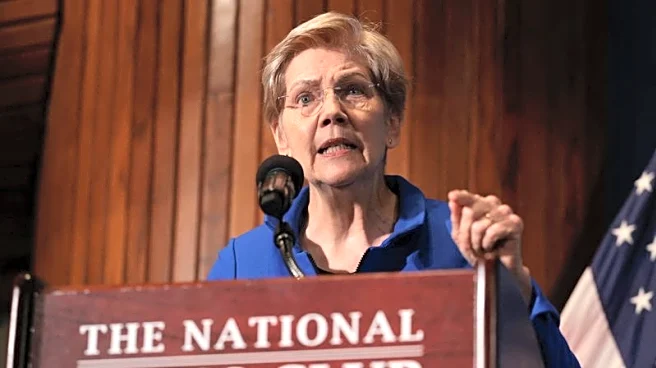What's Happening?
A significant sell-off in AI-related stocks has occurred, affecting major companies such as Nvidia, Meta, Palantir, and Oracle. This development is reported to have led to a $1.2 trillion decline in market
value. Additionally, tech giants like Microsoft, Amazon, and Alphabet are experiencing financial strain as they borrow hundreds of billions to fund AI expansion. This mass sell-off is setting Wall Street on course for its worst week since the tariffs imposed by President Trump in April. The Financial Times highlights the impact of this sell-off on the stock market, indicating a broader economic concern.
Why It's Important?
The sell-off in tech stocks is significant as it reflects investor concerns about the sustainability of AI investments and the broader tech sector's financial health. This downturn could have ripple effects across the U.S. economy, potentially affecting employment in tech industries and influencing investor confidence. Companies heavily invested in AI may face challenges in maintaining growth and innovation, impacting their competitive edge. The situation underscores the volatility of tech stocks and the importance of strategic financial planning in the face of market fluctuations.
What's Next?
As the market reacts to the sell-off, companies may need to reassess their investment strategies and financial commitments to AI development. Investors and analysts will likely monitor the situation closely, anticipating potential recovery or further declines. The response from major stakeholders, including tech companies and financial institutions, will be crucial in stabilizing the market. Additionally, regulatory bodies may consider interventions to mitigate economic impacts and ensure market stability.
Beyond the Headlines
The sell-off raises questions about the long-term viability of AI investments and the ethical considerations of rapid technological advancement. Companies may face scrutiny over their financial practices and the societal implications of AI technologies. This event could prompt discussions on the balance between innovation and economic stability, influencing future policy decisions and corporate strategies.











